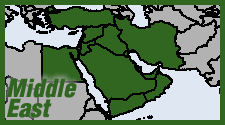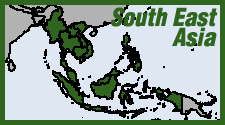 Saudi Arabia on May 17 beheaded a Pakistani man convicted of drug trafficking, bringing to 84 the number of executions in the kingdom so far this year. The pan-Arab news agency Al Bawaba reports that the convict was beheaded in the Red Sea city of Jeddah, after being found guilty of attempting to traffic heroin into the kingdom in balloons he had swallowed. In 2014, Saudi Arabia carried out a total of 87 executions, so it is about to break last year's record not even halfway through 2015. Some of these have won much attention in the countries the convicts hailed from. On April 16, Saudi Arabia beheaded an Indonesian female domestic worker, just two days after executing another woman from the Southeast Asian country. In January, Saudi authorities publicly beheaded Laila Bint Abdul Muttalib Basim, a Muslim woman from Burma who was convicted of murder, in the holy city of Mecca. Footage of the execution showed Basim being dragged into a street and held down by four police officers as she repeatedly shouted, "I did not kill, I did not kill." Basim then screamed as a sword-wielding executioner struck her neck. Second and third blows completed the beheading and authorities quickly removed her body from the street.
Saudi Arabia on May 17 beheaded a Pakistani man convicted of drug trafficking, bringing to 84 the number of executions in the kingdom so far this year. The pan-Arab news agency Al Bawaba reports that the convict was beheaded in the Red Sea city of Jeddah, after being found guilty of attempting to traffic heroin into the kingdom in balloons he had swallowed. In 2014, Saudi Arabia carried out a total of 87 executions, so it is about to break last year's record not even halfway through 2015. Some of these have won much attention in the countries the convicts hailed from. On April 16, Saudi Arabia beheaded an Indonesian female domestic worker, just two days after executing another woman from the Southeast Asian country. In January, Saudi authorities publicly beheaded Laila Bint Abdul Muttalib Basim, a Muslim woman from Burma who was convicted of murder, in the holy city of Mecca. Footage of the execution showed Basim being dragged into a street and held down by four police officers as she repeatedly shouted, "I did not kill, I did not kill." Basim then screamed as a sword-wielding executioner struck her neck. Second and third blows completed the beheading and authorities quickly removed her body from the street.

 Indonesia, facing global criticism over a
Indonesia, facing global criticism over a  Identical twin brothers
Identical twin brothers  2014 witnessed considerable fraying of the international Drug War consensus—but the horrific violence that finally sparked this long-overdue reckoning continued to take its grim toll. On the upside, Uruguay regsitered its
2014 witnessed considerable fraying of the international Drug War consensus—but the horrific violence that finally sparked this long-overdue reckoning continued to take its grim toll. On the upside, Uruguay regsitered its  The sentencing last month in a case related to the Sinaloa Cartel's
The sentencing last month in a case related to the Sinaloa Cartel's  Well, this is really cute. With refreshing honesty,
Well, this is really cute. With refreshing honesty, 





Recent comments
2 weeks 19 hours ago
2 weeks 1 day ago
5 weeks 1 day ago
6 weeks 1 day ago
10 weeks 1 day ago
13 weeks 6 days ago
18 weeks 1 hour ago
18 weeks 5 days ago
28 weeks 5 days ago
32 weeks 5 days ago